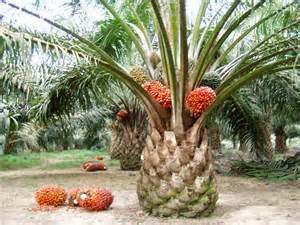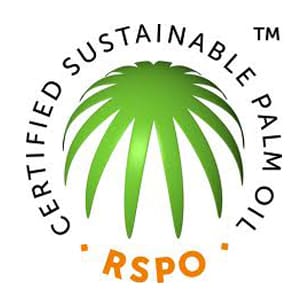Introduction

Palm Oil is a vegetable oil extracted from oil palm trees. Its scientific name is Elaeis guineensis Jacq. Palm Oil grows best in tropical climates with rich water. One of the main locations for Palm oil production is in Indonesia and Malaysia. There are two types of palm oil. One of them is Crude palm oil that comes from squeezing the fresh fruit. The other type is kernel oil that comes from crushing the kernel of the middle of the fruit. Palm oil is important because it is a common oil used in food in many parts of the world and mostly Asia and Africa. We can find it almost everywhere around us. 50% of the packaged products in local supermarkets contain palm oil. Some of these products are toothpaste, pizza, cosmetics and shampoo.
Also, many people rely on it for their diets. Furthermore, it is important in economic development. Palm oil cannot be replaced because many people depend on it for money to feed their families. An example is the smallholder Pak Bakri that used to work as a construction labourer. However, he used to live a poor life, but now he helps his brother with palm oil and his life has improved a lot since then. He was able to provide enough money for his family for food. Also, he was able to send his children to school because of palm oil. Even if palm oil were to be replaced, it would require a large amount of money of at least 50 million additional hectares of prime farmland to harvest a similar amount of edible oil.
Problem
Palm oil is one of the major causes for deforestation. Deforestation is the removal of trees and forests leading to imbalances that result in the decline in habitats and biodiversity. The picture on the right is evidence that shows how palm oil causes deforestation and destroys the trees and plants. As the demand for palm oil increases, many forests continue to be cleared using slash and burn techniques. Palm oils reduce the diversity of many species. An example is that it has played an important role in in the decline in species like orangutans and tigers. Every year, about 750 to 1,250 species are killed during the human orangutan conflicts that are related to agriculture. Deforestation contributes too many different things including climate change, since trees are responsible for the removal of carbon dioxide from the atmosphere during the process of Photosynthesis. If this issue continues, then forests will be destroyed making it harder for us to live since we won’t have enough oxygen and we won’t have medical remedies for illnesses. Moreover, Animals and other species won’t have a place to live in.
Solution

Palm oil can be produced sustainably without destroying forests and harming many species. This can be done using a solution that has already started in 2004 and it is the Roundtable on Sustainable Palm Oil (RSPO). It was created to encourage the production of sustainable palm oil for people and the world. The roundtable for sustainable palm oil certifies companies and smallholders working towards producing palm oil in a way that doesn’t harm the people or the environment. 40% of the world’s palm oil producers are also members of this project. There are 8 RSPO principles and criteria in order for growers to be certified. They are: Commitment to transparency, compliance with applicable laws and regulations, commitment to long term economic and financial viability, use of appropriate best practices by growers and millers, environmental responsibility and conservation of natural resources and biodiversity, responsible consideration of employees and of individuals and communities affected by growers and mills, responsible development of new plantings, and commitment to continuous improvement in key areas of activity. These principles will help avoid the negative impacts of palm oil production on rain forests and ecosystems in areas overwhelming palm oil when used correctly. There are many advantages and disadvantages that come with this solution. Some of the advantages are that palm oil won’t harm rain forests any longer by using sustainable palm oil. On the other hand, a disadvantage is that not all smallholders can work with RSPO and this might cause some families to be poor.
Impact
There are many environmental impacts that come within this solution. Some of them include reducing killing plants and animals. Also, trees will grow again making more oxygen for us and other species to use. An effect or impact can be that it will reduce deforestation, cutting trees and burning them. Another impact is that ecosystems will gain the diversity of many species. Furthermore, an impact can be that it will also reduce biodiversity loss. Also, it will minimize climate changes and weather conditions. In addition to that it will help keep ecosystems stable and everything in it safe and this will affect the rainforest to provide us with more remedies and medicines for diseases.
The picture on the left shows the impacts of palm oil on biodiversity before this solution and how it used to affect 193 endangered species.
